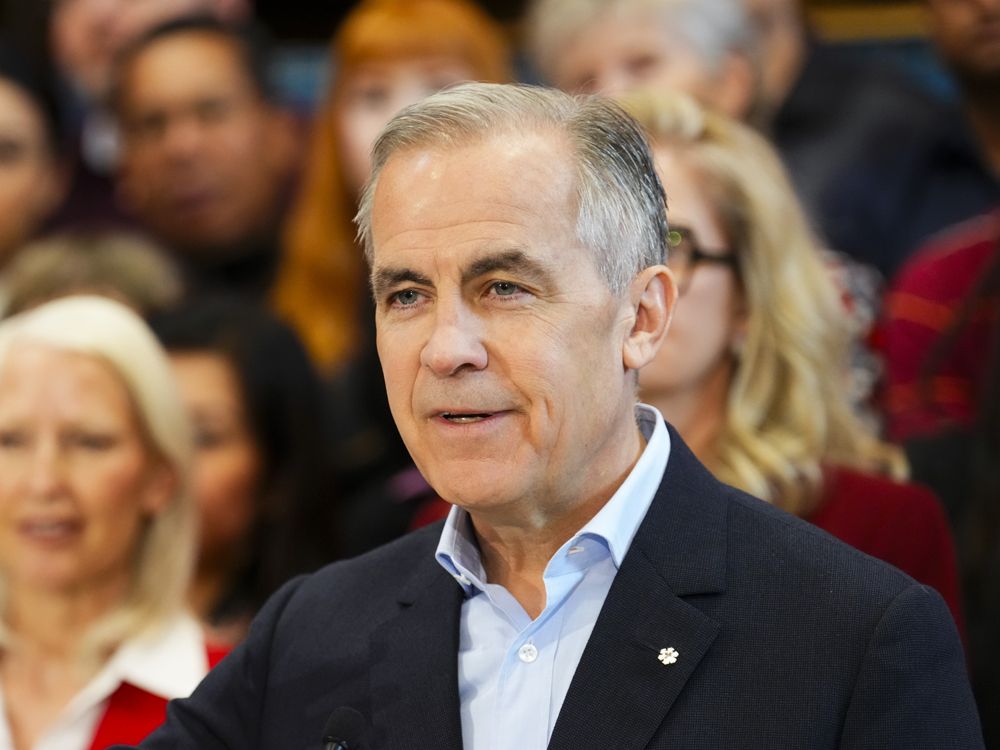Slow and clear transition to higher interest rates could avoid a negative shock
Article content
With interest rates set to rise, perhaps as soon as March, it’s fair to ask what that could mean for Canada’s lacklustre commitment to business investment, now that loans are about to become more expensive.
Advertisement
This advertisement has not loaded yet, but your article continues below.
Article content
The Bank of Canada held the overnight interest rate at the lower bound of a quarter per cent in its decision on Wednesday, but telegraphed an end to its commitment to low policy rates until the middle quarters of 2022.
Company spending on machinery, software and non-residential property, like factories, was less than 10 per cent of Canada’s $2-trillion gross domestic product (GDP) in the third quarter, down from 13 per cent in 2014, when oil prices collapsed, a shock from which the oilpatch still hasn’t recovered.
The pandemic hasn’t helped, as business investment has continued to shrink amid all the uncertainty created by the global recession that followed COVID lockdowns in 2020, and the worryingly fast inflation that has come with the recovery.
Advertisement
This advertisement has not loaded yet, but your article continues below.
Article content
So as central banks in Canada, the United States, and elsewhere move to tame price pressures by raising borrowing costs, there’s a risk that higher interest rates could dampen investment intentions. But economists said that Bank of Canada Governor Tiff Macklem probably can avoid a negative shock to business sentiment by communicating clearly and ratcheting up borrowing costs slowly.
“Business investment is going to recover somewhat and that’s not really a brave call,” Pedro Antunes, chief economist at the Conference Board of Canada, said in an interview. “It’s just that we’re at such low levels, it’s bound to recover.”
Business investment is going to recover somewhat and that’s not really a brave call
Pedro Antunes
Until the first quarter of 2014, business investment in the U.S. and Canada was roughly the same in terms of its share of GDP. Since then, the story has been dramatically different. The capital expenditure of U.S. companies was nearly 15 per cent of economic output in the third quarter last year, suggesting the U.S. economy has become more competitive during the pandemic.
Advertisement
This advertisement has not loaded yet, but your article continues below.
Article content
A lack of investment, historically, has translated into slower labour productivity growth, with Canada posting annual gains of one per cent on average from 2000 to 2019, whereas the U.S. saw growth of 1.7 per cent.
Even if Macklem opts to tap the brakes, a series of interest-rate increases probably wouldn’t discourage businesses, given they are sitting on mountains of cash, said Benjamin Tal, deputy chief economist at Canadian Imperial Bank of Commerce.
Firms have accumulated more than $130 billion in excess cash since the start of the pandemic, and are likely holding off spending it until executives have a clearer vision of the road ahead. A straightforward message from the central bank about how it intends to confront inflation could boost confidence over the near term, Tal said.
Advertisement
This advertisement has not loaded yet, but your article continues below.
Article content
“It’s really the message from the Bank of Canada that they are not behind the curve (which) can help businesses down the road by improving confidence,” he said. “If you are a CEO, you’re taking a very conservative approach towards spending money in this environment because you don’t know where we will be six months from now.”
The central bank is confident firms will spend on operational upgrades once pandemic-related weaknesses subside, it indicated in its Monetary Policy report published on Jan. 26.

“Outside the oil and gas sector, firms are expected to increase their investment in the face of growing domestic and foreign demand, improved business confidence, limited production capacity and the gradual easing of supply constraints,” policy-makers said in the report.
Advertisement
This advertisement has not loaded yet, but your article continues below.
Article content
The past year has been more chaotic than clear for executives. Companies have had to grapple with a deadly virus, soaring inflation, and supply-chain bottlenecks. Macklem and other central bankers initially said the burst of inflation that came with the recovery would be temporary, and then relented as price pressures continued to build. Canada’s consumer price index surged 4.8 per cent in December from a year earlier, the biggest increase in more than 30 years.
On top of that, immigration stalled because of travel restrictions, exacerbating a labour shortage that produced nearly 900,000 vacancies in 2021 even as overall employment returned to pre-pandemic levels in the fall. There’s hope on the horizon with the Omicron wave seeming to have peaked in some parts of the country, but anxiety still abounds among employers, said Antunes.
Advertisement
This advertisement has not loaded yet, but your article continues below.
Article content
Broad-based investment intentions signalled in the latest Business Outlook Survey suggest the tides could change coming out of the pandemic, especially as firms look to rebuild inventories eaten up by hot demand and supply-chain clogs.
It’s also possible that investment isn’t as sluggish as headline numbers suggest.
COVID-19 has quickened the pace of technology adoption, especially among professional service industries, which tend to deploy less capital per worker. Some of those positives might not be fully captured in data, especially among technology companies, which focus their business investment on people and research and development, said Martin Toner, director of institutional research at ATB Capital Markets Inc.
Advertisement
This advertisement has not loaded yet, but your article continues below.
Article content
“That’s where the vast majority of capital being raised by startups goes. It mostly goes into people and research because this is all intellectual property,” Toner said.
The state of the labour market could be giving businesses another reason to invest. All those unfilled positions could put upward pressure on wages, lowering the trade-off between buying productivity-enhancing equipment and hiring more workers.
“Corporations will not sit and do nothing,” said Tal. “Now labour is expensive, unavailable. People will switch to investing in capital.”
• Email: bbharti@postmedia.com | Twitter: biancabharti
Listen to Down to Business for in-depth discussions and insights into the latest in Canadian business, available wherever you get your podcasts . Check out the latest episode below:
Advertisement
This advertisement has not loaded yet, but your article continues below.
Will rate hikes dampen Canada’s already lacklustre business investment?
2022-01-26 15:18:13






